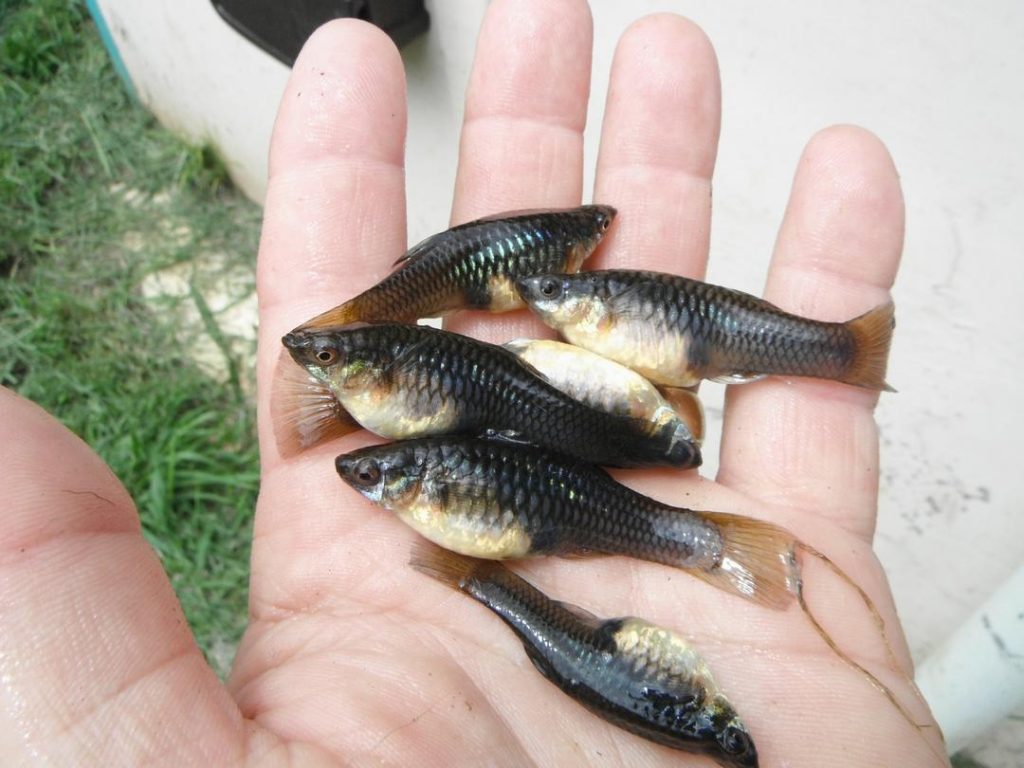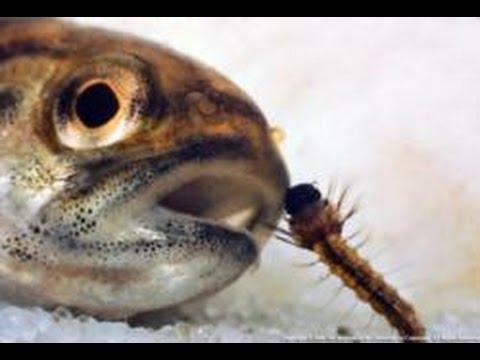Eradicating Mosquitoes On Your Aquaponic Farm
Yes, I said eradicating!
Not “poisoning”, not “shooting with a BB gun”, not “trying to filter them out of the water”, not “changing their vibrational frequency with chanting and bells”, but eradicating!
Possibly the most important HEALTH benefit of farming aquaponically that we noticed after our first system was operational for six months, was that the mosquitoes on our seven-acre farm had COMPLETELY disappeared!
We live in Hawaii, where there are as many mosquitoes as any other tropical area in the world. Although we are fortunate not to have malaria, yellow fever, or any of the other dangerous diseases that are transmitted to humans by mosquitoes, we DO have dengue fever, which can be fatal in the young, elderly, or those with compromised immune systems.
To see mosquito fish eradicating mosquitoes, watch this short video:
Before we built our first aquaponics system, our farm was like any other place on the green windward coast of the Big Island: even during a drought, when the soil was dusty and dry and there was no standing water visible anywhere, there were still clouds of mosquitoes at dawn and dusk. If we left a door or window open in the house during the day, even for a few minutes, we knew that the buzzing of hungry mosquitoes all night long as we tried to sleep would torment us. We had to sleep inside mosquito nets for years as a result.
When we built that first system, we knew it was a place mosquitoes would lay their eggs, so we introduced a few mosquito fish (Gambusia affinis), and neon tetras into our system water.
(Below) A handful of VERY pregnant female Gambusia Affinis; AKA mosquito fish. Aren’t they gorgeous? They are “live-bearers”, which means they gestate their eggs inside their bodies until they hatch, then birth little live fish directly into the system water when they are ready.
They thrived and spread through our 3 systems, and soon had become a self-sustaining population of tens of thousands. Six months later we noticed there were simply no mosquitoes on the farm anymore.
You know how easy it is to notice the presence of an annoying pest, and how sometimes you don’t notice when they’re gone? We’re not certain when the number went to zero, but it was sometime during that six-month period. And I mean “no mosquitoes”, not “very few”, or “they weren’t nearly as annoying as before”, I mean ZERO! I’d go work in shorts and T-shirt for a day on our stable, which is 700 feet upwind from the aquaponics systems, and I wouldn’t see a single mosquito or get even one bite.
We got to the point where, after we shared this with the people at our weekly Farm Tours, we bet them $10 if they could swat a single mosquito and show it to us. No one ever collected, in hundreds of Farm Tours and tens of thousands of people.
We’ve lived for years in the center of a deadly efficient mosquito trap: every mosquito in the neighborhood can sense the huge amount of water in our aquaponic systems, and comes to them to lay her eggs.
Each egg hatches into a larva, which is then promptly consumed by one of the hundreds of thousands of mosquito fish in our water BEFORE it can ever develop sufficiently to hatch into an adult mosquito. hat mosquito’s bequest of future generations is GONE, down the gullets of little fish who thrive on them and produce even MORE little fish hungry for mosquito larvae.
(Below) Eat like dis!
We don’t know what the effective radius of our mosquito eradicator is; we’ve gone to the corners of our seven-acre property and found no mosquitoes there; there’s a good chance it is significantly reducing mosquito populations on the farms around us. We need help and funding to continue research into this phenomenon in order to understand it better, and to develop it to the point where it can easily be implemented in any location or culture.
This could make a huge difference in the lives of people worldwide who currently lose family members to malaria and other mosquito-borne diseases.
Just imagine: a mosquito-eradication system that just incidentally PRODUCES FOOD! You’d think some of the folks trying to solve mosquito-borne disease problems worldwide in countries that also have food problems would be interested in this!
